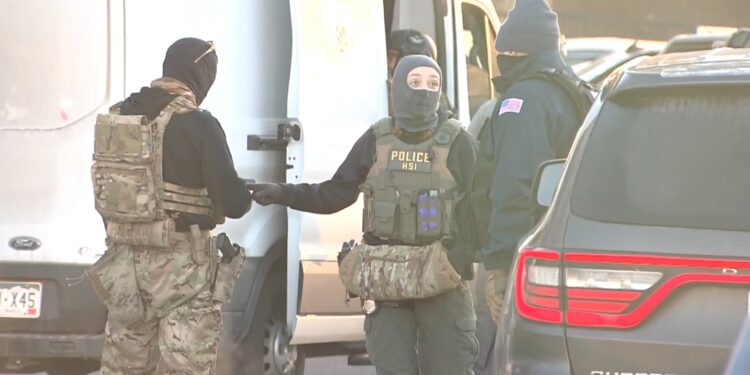LANSING, Mich. (WZMQ) – Michigan Attorney General Dana Nessel has joined 20 other attorneys general in calling on Congress to pass legislation that would require U.S. Immigration and Customs Enforcement (ICE) agents to clearly identify themselves during enforcement actions.
The coalition submitted a formal letter urging lawmakers to prohibit federal immigration agents from wearing masks or concealing their identity and to require the display of badges or other agency-identifying insignia. The group argues that current ICE enforcement tactics, often involving plainclothes officers in unmarked vehicles, pose a risk to both the public and law enforcement.
“This is not how American law enforcement has ever operated before,” Nessel said in an interview with WZMQ 19. “We’re seeing ICE operate in ways that can lead to confusion, panic, and in some cases, serious danger.”
The letter highlights incidents of ICE arrests occurring at courthouses, homes, and even domestic violence shelters without notifying local officials. Attorneys general warn that such operations can lead civilians to mistake agents for kidnappers or criminals and may encourage impersonation by bad actors.
The coalition also raised concerns that the tactics may discourage immigrants, including those who are legally residing in the U.S., from seeking healthcare, enrolling their children in school, or reporting crimes.
“People are afraid that ICE might be waiting around the corner,” Nessel said. “That fear is stopping them from accessing critical services.”
Current Michigan law requires law enforcement officers to be clearly identifiable, and Nessel said her department follows those standards. “Our agents don’t wear masks. They execute warrants and make arrests with clear identification, just like every other agency should.”
The coalition is asking Congress to pass federal legislation requiring ICE officers to wear badges, identify their agency, and coordinate operations with local law enforcement. Supporters of the proposed changes say such reforms would reduce confusion, prevent dangerous confrontations, and rebuild trust between federal agents and the communities they serve.










